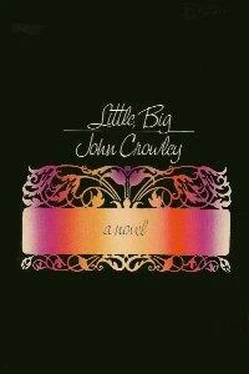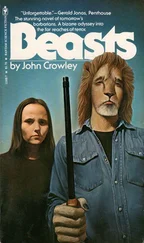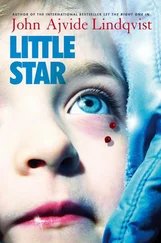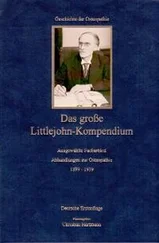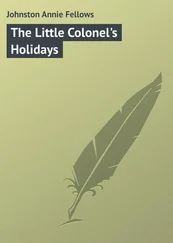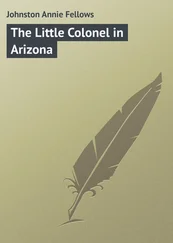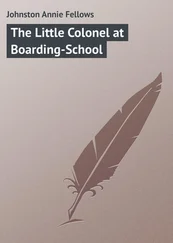“I was just a little kid.”
“Do you all forget?” she said, not as though to him, but as though questioning herself, questioning a strange perception she had just then had. “Do you all really forget? Is that it? Did Timmie? Do you all?” She raised his face in her hands to study it. “August? Do you forget, or… You mustn’t, you mustn’t forget; if you do…”
“What if they didn’t mind?” August said, defeated. “What if they didn’t care at all? How can you be so sure they’d mind? They’ve got a whole world to themselves, don’t they?”
“I don’t know.”
“Grandy said…”
“Oh, dear, August, I don’t know.”
“Well,” he said, extracting himself from her, “then I’ll go ask. I’ll go ask their permission.” He rose. “If I ask their permission, and they say it’s all right, then…”
“I don’t see how they could.”
“Well, if they do?”
“How could you be sure? Oh, don’t, August, they might lie. No, promise me you won’t. Where are you going?”
“I’m going fishing.”
“August?”
When he was gone the tears rose again to her eyes. She brushed away impatiently the hot drops that rolled down her cheeks, rolled down because she couldn’t explain: nothing she knew could be said, there were not the words, when she tried the very saying of it made what she said into lies or stupidities. They’re brave, she had said to August. They might lie, she had said. None of that was true. They weren’t brave, and they couldn’t lie. Such things were true only when said to children, as it’s true when you say “Grandy’s gone away” to a child, when Grandy is dead, when there is no more Grandy to come or go. And the child says: Where did he go? And you think of an answer a little less true than the first, and so on. And yet you have spoken truly to it, and it has understood, at least as much as you have.
But her children weren’t children any more.
So many years she had tried to form what she knew into language with John, grown-up language, nets to catch the wind, the Meaning of it all, the Intention, the Resolution. Oh great good man! And he had come as close to understanding it as intelligence, unwearying application, orderliness of mind and attention to detail could get.
But there wasn’t any Meaning, or any Intention, or any Resolution. To think that way about them was like trying to do some task while you looked only in a mirror: force them as you might, your hands do the opposite of what they are told to do, away from not toward, left not right, forward not back. She sometimes thought that thinking of them at all was just that: was looking at yourself in a mirror. But what could that mean?
She didn’t want her children to be babies forever, this country seemed full of people furious to grow up and though she hadn’t ever sensed herself growing up she didn’t care to prevent it in others, only she was afraid: if her children forgot what they had known as children, they were in danger. She was sure of that. What danger? And how on earth was she to warn them?
There were no answers, none. All that was within the power of mind and speech was to become more precise in how the questions were put. John had asked her: Do fairies really exist? And there wasn’t any answer to that. So he tried harder, and the question got more circumstantial and tentative, and at the same time more precise and exact; and still there were no answers, only the fuller and fuller form of the question, evolving as Auberon had described to her all life evolving, reaching out limbs and inventing organs, reticulating joints, doing and being in more and more complex yet more and more compact and individuated ways, until the question, perfectly asked, understood its own answerlessness. And then there was an end to that. The last edition, and John died still waiting for his answer.
And yet there were things she knew. On the oxbloodcolored mahogany table stood John’s tall black typewriter, bony and carapaced like an old crustacean. For August’s sake, fcr all of their sakes, she ought to say what she knew. She went to it, sat before it, rested her hands on its keys as a pianist might, thoughtfully, before beginning some soft, sad, almost inaudible nocturne; then realized there was no paper in it. This took a while to find; and her notepaper, when she had rolled a piece within the typewriter’s jaws, looked small and shrinking and unready to receive the blows of the keys. But she began, using two fingers, and spelled out this:
violets notes about them
and beneath this, the word Grandy had used to write on the desultory journals he kept:
tacenda
Now what? She advanced the paper, and wrote:
they mean no good to us
She thought about this for a moment, and then directly under it, she added:
they mean us no harm either.
She meant that they didn’t care, that their concerns weren’t ours, that if they brought gifts—and they had; if they arranged a marriage or an accident—and they had; if they watched and waited—and they did, none of that was with any reason to aid or hurt mortals. Their reasons were their own—if they had reasons at all, she sometimes thought they didn’t, any more than stones or seasons have.
they are made not born
She considered this, cheek in hand, and said “No,” and carefully x’d out “made” and wrote “born” above it, then x’d out “born” and wrote “made” above it, and then saw that neither was truer than the other. Useless! Was there any thought about them she could have whose opposite wasn’t true? She skipped a space, sighing, and wrote:
no two doors to them are the same
Is that what she meant? She meant that what was a door for one person wouldn’t be a door for another. She meant also that any door, once passed through, ceased to be a door ever after, could not even be returned by. She meant that no two doors ever led to the same place. She meant that there were no doors to them at all. And yet: she found, on the topmost rank of keys, an asterisk (she hadn’t known the machine carried one) and added it to her last sentence, so it read:
no two doors to them are the same
And beneath that she wrote:
but the house is a door
This filled up her little notepaper, and she drew it out and read over what she had written. She saw that what she had was a sort of precis of several chapters of the last edition of the Architecture , deprived of the billowing draperies of explanation and abstraction, nude and frail but no more help than ever. She crushed it slowly in her hands, thinking she knew nothing at all and yet knew this: that the fate that awaited her and all of them awaited them here (why was she dumb to say why she knew it?), and so they must cling to this place, and not stray far from it, she supposed that she herself wouldn’t ever leave it again. It was the door, the greatest of doors, it stood Somehow, by chance or design, on the very edge or border of Elsewhere, and it would in the end he the last door that led that way. For a long time it would stand open; then for a time after that it would at least be able to be opened, or unlocked, if you had the key; but there would come a time when it would he closed for good, not be a door at all any more; and she wanted none of those whom she loved to be standing outside then.
The south wind blows the fly in the fish’s mouth, says the Angler, but it didn’t seem to blow August’s well-tied and tempting examples into any. Ezra Meadows was sure that fish bite before rain; old MacDonald had always been sure they never do, and August saw that they do and don’t: they bite at the gnats and mosquitoes settling like dust-motes over the water, driven down by altering pressure (Change, said John’s ambivalent barometer) but not at the Jack Scotts and Alexandras August played over them.
Читать дальше
